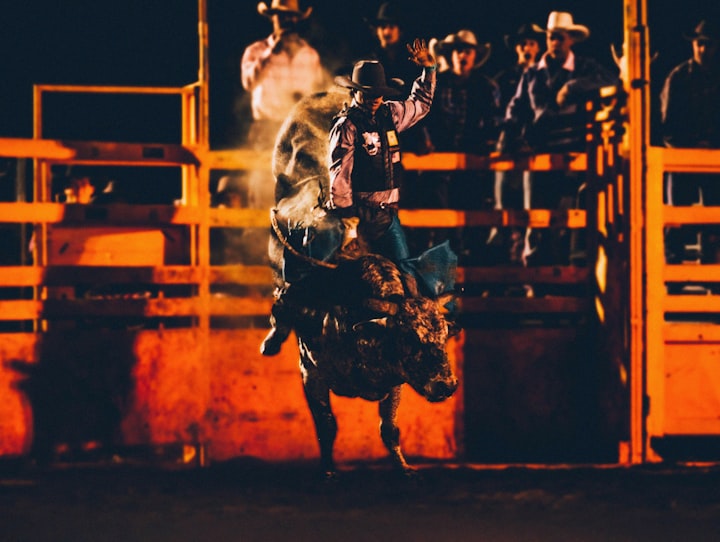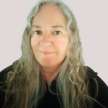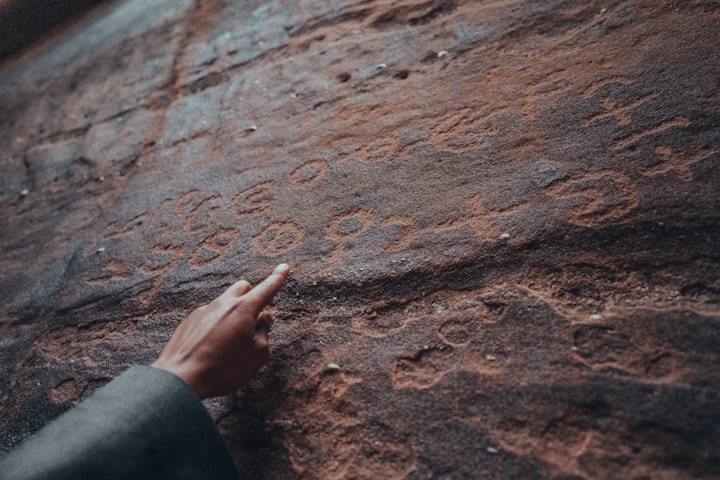
I always thought my brother was dead. No one outright told me he was, but I assumed it was true.
My older brother Bennett—I always called him by his full name, like Mum did, even though everyone else called him Ben—disappeared when I was ten. He was fifteen. He went to school one day but never came home.
I remember the fuss and the police, and the strangers traipsing through our house at all times of the day and night. I feel bad that, at the time, I resented the police searching my room and Bennett’s room as if they thought they’d find him hiding in the closet or in a drawer under some underwear. I was scared for Bennett but I always thought he’d come back. When he didn’t, I thought he must have died. Why else would he stay away?
Bennett’s disappearance dominated the front pages of the newspapers for a couple of weeks but, as no progress was made on his case, he gradually got pushed further and further into the soft centre of the papers until one day they stopped mentioning him at all. The world moved on and forgot Bennett. He was just another missing kid, like all those other missing kids that were never found.
Mum cried non-stop for days. Dad became withdrawn and hardly said a word to anyone until one day he went to work and he didn’t come home.
Dad didn’t vanish like Bennett. He couldn’t cope with Bennett’s loss, so his way of handling it was to shut down and turn off. After work one day, he jumped on a random train and, just like that, he was out of Mum’s and my life.
Mum was frantic when Dad didn’t come home for dinner but he called her around 10 o’clock that night and tried to explain. She was inconsolable for days and tried to tell me that Dad would be back soon, but I knew he wouldn’t. She tried to sugar coat it, but I think that seeing us reminded him too much of the Bennett-shaped hole in our house and we weren’t enough to fill that hole.
After Dad left, Mum became over-protective of me. If I wanted to leave the room, I had to tell her where I was going and why and for how long. I wasn’t allowed to catch the school bus anymore and it was years before she let me stay overnight at a friend’s house.
Not that I had many friends. After Bennett, other parents acted like I’d contracted something contagious and that their kids would go missing too if I got too close. The attitude quickly rubbed off on the kids and everybody avoided me when they could.
I started to believe it too, especially when Grandma left too. She’d moved in with us after Dad left but she died soon after. I thought I was cursed so I didn’t try to make friends. I half-expected Mum to not pick me up from school one day and I’d find she’d moved and not left a forwarding address. But, Mum’s the only one who never left.
For a while after Bennett, the teachers treated me like an ancient relic that would break if you didn’t tiptoe past it or handle it gently. They wouldn’t meet my eye, as if they were embarrassed for me because I’d somehow mislaid my brother. They spoke softly and gave me higher marks for my schoolwork than it was really worth. Of course, I took advantage and became lazy, turning on sad puppy-dog eyes when I knew they were going to ask me where my homework was.
I got used to being alone. Mum drove me to and from school. I sat in the front row of the classroom so I wouldn’t see kids making faces and passing notes about me behind my back. I ate lunch by myself in a corner of the quadrangle, then spent the rest of the break in the library. I read a lot. I looked for books about missing persons. Those books fuelled my imagination and convinced me that Bennett was dead. He wasn’t coming back.
I decided I would become a police detective when I grew up. I watched cop shows on tv and admired the loner-types who got the job done when no one else could. I would be that guy. I would find my brother’s body when no one else had been able to.
Then, when I was thirteen, Bobby blew into my life like a whirlwind. Bobby’s family lost their farm—the bank took it from them—and they had no choice but to move into town. Bobby’s dad was good with his hands and earned money by painting and fixing things. His mum got a job in the local bakery, so Bobby always had cakes in his lunchbox.
Bobby bowled into the classroom as if he owned it even though he was ‘the new kid’. He didn’t even stop to look around but sat down next to me, in the seat that had been empty for years. He leaned over and whispered, “Hey.”
Bobby followed me around like a dog all that first day, even though the cool kids tried to get him to hang out with them. Bobby shrugged them off, said he thought I looked more interesting. I told him about Bennett so he’d know what he was getting into and he said he didn’t care that I’d misplaced my brother and, anyway, his family had other things to worry about than something that happened years ago to someone else.
The first time I went to Bobby’s house was the first place I’d been to that wasn’t my own since Bennett went missing. I think Mum was secretly pleased that I finally had a friend and she reluctantly said yes when I asked if I could walk home with Bobby and stay there for a few hours after school.
I followed Bobby up the rickety wooden stairs and through his front door. He threw his backpack on the floor and tossed his jacket on the back of a chair. I stood there, dumbfounded, looking at the mess and wondering if I should take my shoes off. Since Bennett’s disappearance, my mother had been obsessive about a clean house: shoes must be taken off at the door, jackets must hang neatly out of sight in the closets, all dirt must be left at the door.
Bobby had two older brothers and a younger sister. I wondered how anyone stayed sane with that level of noise. I hadn’t even noticed the silence that had replaced Bennett but now I realised how sad and quiet my own house was.
I trod lightly following Bobby to his room, making sure no dirt fell off my shoes. Bobby tramped his way through piles of clothing and toys and dolls strewn all over the floor. I wrinkled my nose at the smell of teenage boys, mainly sweat and dirty socks.
I stopped in the doorway of Bobby’s bedroom and stared at the huge oil painting that dominated the room. A massive bull, twisted in a way that no bull should be able to twist, was trying to dislodge a tiny figure holding tightly to its back. I’d never seen anything like it.
Bobby glanced at me, pleased by my reaction, and said, “That’s what I’m going to be. A rodeo cowboy.”
I didn’t even know that was a viable occupation choice. It made my police detective seem kind of lame. How brave did you have to be to take on such a magnificent beast? Braver than me, to be sure. Someone who would do that could do anything they wanted. My adulation of Bobby ramped up to new heights.
“We used to go to rodeos all the time,” Bobby said. “Now the farm’s gone, I hope Dad lets us keep going. Do you want to come next time?”
I did. If Mum would let me. Bobby said he’d convince her. I believed him. There was nothing Bobby couldn’t do from that moment on, in my eyes. We became inseparable.
The first rodeo I went to was dusty and smelly and loud, but it was the best thing I’d ever seen. I cheered loudly for Bobby when he won his age class. I was proud that he was my friend and proud to be part of his rough-and-ready rodeo family.
We went to more rodeos and I carried his hat and ran his errands. He lost more than he won but he was still determined that that was what he was going to do for a living. I prepared to put my own policing ambitions on hold to follow him on the rodeo circuit. It didn’t even feel like a choice for me. I would follow Bobby wherever he went.
Then, we turned fifteen—the same age that Bennett was when he disappeared—and Bobby left me too. I should have known it was too good to be true. That it wouldn’t last forever. People always left. That’s just what they did.
One Saturday afternoon, we rode our bikes out past the edge of town. I stood at the edge of a field as he ran across, taunting the bull, daring it to chase him. I was terrified for him but rapt at the same time. When he tripped on a clump of grass and sprawled his gangly limbs all over the ground, my heart leapt to my throat as the bull snorted and lowered its head. Bobby laughed and crawled on hands and knees, try to make the bull think he was hurt, like a plover defending its nest, but the bull was having none of it. It looked at him like he was an idiot, blinked, then kept on eating.
Bobby was laughing crazily as we rode back into town. He was zigging and zagging all over the road. There was never much traffic. But suddenly a huge red monstrosity came over the hill in front of us. Bobby didn’t have time to get out of the way because he was looking back at me, showing off to me as he always did.
I dropped my bike right there in the middle of the road and ran to him. Bobby’s broken body was lying lifeless in the ditch, like his off switch had been clicked. His bike was twisted like the bull in his prized painting, but he’d managed to sit the buck, rode the beast to death and beyond.
I’ve never been to another rodeo. I’ve never had another close friend.
After Bobby left, I resumed my lonely existence, studied hard, and became that police detective I always said I would be.
When I turned eighteen, I got a tattoo of a bull on my upper arm so that Bobby would be with me always. Bobby’s mother also gave me the bull painting. I sit underneath it every morning and talk to Bobby over breakfast.
I miss Bobby.
Oh yeah, by the way, I found Bennett. He wasn’t dead, but when I found him he was close to it. Turns out he ran away to the city with an older boy, got into drugs, and lived on the streets and in squats.
Bennett didn’t want my help but I helped him anyway. I got him off the street, paid for his rehab, then moved him into my spare bedroom.
But he left again yesterday.
Just like they all do.
About the Creator
GK Bird
Australian fiction writer and reader, always on the lookout for good writing.






Comments
There are no comments for this story
Be the first to respond and start the conversation.